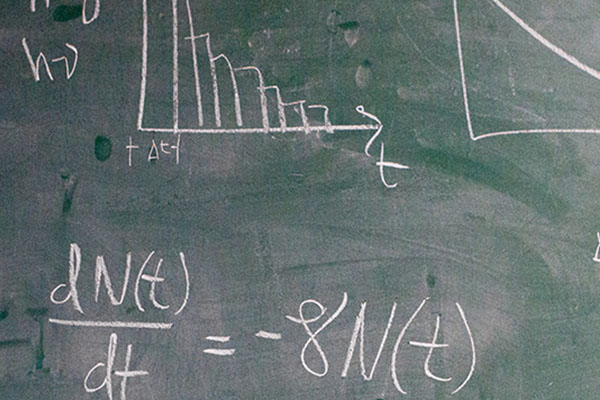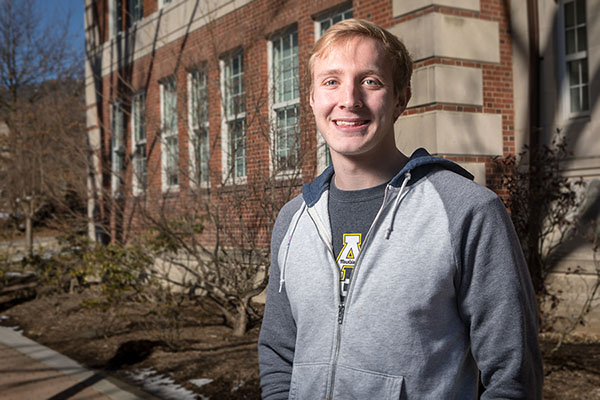BOONE, N.C. — A three-year grant awarded to Appalachian State University by the Physics Teacher Education Coalition (PhysTEC) will help increase the number of graduates from the university’s B.S. in physics-secondary education program and other graduates with teacher licensure in physics secondary education.
The $97,265 grant, awarded to Dr. Jennifer Burris, professor in and chair of the Department of Physics and Astronomy, funds the PhysTEC program at Appalachian for the 2019–20 academic year. An additional $197,375 in grant funding is anticipated for the second and third years of the program.
“There is a critical shortage of high school physics teachers across North Carolina and the nation,” Burris said. “Only 47% of physics classes in the country are taught by a teacher with a degree in the subject, compared with 73% of biology classes and about 80% of humanities classes.”
“PhysTEC at Appalachian proposes to increase physics teacher production across a set of aligned, rigorous licensure pathways that target diverse prospective teachers,” Burris said.
Through strong partnerships with regional rural school districts and a large population of first-generation college students, PhysTEC will develop targeted activities that align with the specific needs of school partners and diverse students — providing a model for university collaboration in physics teacher education with regional school districts, Burris explained.
“Appalachian has a long tradition of commitment to teacher education and partnering with rural and high-needs school districts,” she added.
As part of the grant, a high school teacher-in-residence has been hired who will work closely with Burris and her project collaborators to recruit and mentor future physics teachers.
The university’s B.S. in physics-secondary education program is a collaborative degree program offered through the College of Arts and Sciences’ Department of Physics and Astronomy and the Reich College of Education.
What do you think?
Share your feedback on this story.
About the Department of Physics and Astronomy
The Department of Physics and Astronomy’s curriculum has an applied nature that includes a core of fundamental physics courses and laboratory experiences. The department prepares graduates for a variety of scientific, teaching or engineering professions, as well as future educational endeavors. Learn more at https://physics.appstate.edu.
About the College of Arts and Sciences
The College of Arts and Sciences (CAS) at Appalachian State University is home to 17 academic departments, two centers and one residential college. These units span the humanities and the social, mathematical and natural sciences. CAS aims to develop a distinctive identity built upon our university's strengths, traditions and locations. The college’s values lie not only in service to the university and local community, but through inspiring, training, educating and sustaining the development of its students as global citizens. More than 6,800 student majors are enrolled in the college. As the college is also largely responsible for implementing App State’s general education curriculum, it is heavily involved in the education of all students at the university, including those pursuing majors in other colleges. Learn more at https://cas.appstate.edu.
About the Reich College of Education
Appalachian State University offers one of the largest undergraduate teacher preparation programs in North Carolina, graduating about 500 teachers a year. The Reich College of Education enrolls more than 2,000 students in its bachelor’s, master’s, education specialist and doctoral degree programs, with offerings that span multiple fields — from teacher preparation, counseling, and therapy, to higher education, school and student affairs administration, library science, educational leadership and more. With over 10,000 alumni employed in North Carolina public schools, there is at least one Reich College graduate in every county in the state. Learn more at https://rcoe.appstate.edu.
About Appalachian State University
As a premier public institution, Appalachian State University prepares students to lead purposeful lives. App State is one of 17 campuses in the University of North Carolina System, with a national reputation for innovative teaching and opening access to a high-quality, cost-effective education. The university enrolls more than 21,000 students, has a low student-to-faculty ratio and offers more than 150 undergraduate and 80 graduate majors at its Boone and Hickory campuses and through App State Online. Learn more at https://www.appstate.edu.






![How NCInnovation Is Rethinking Economic Development in North Carolina [faculty featured]](/_images/_posts/2026/02/rethinking-economic-development-600x400.jpg)






